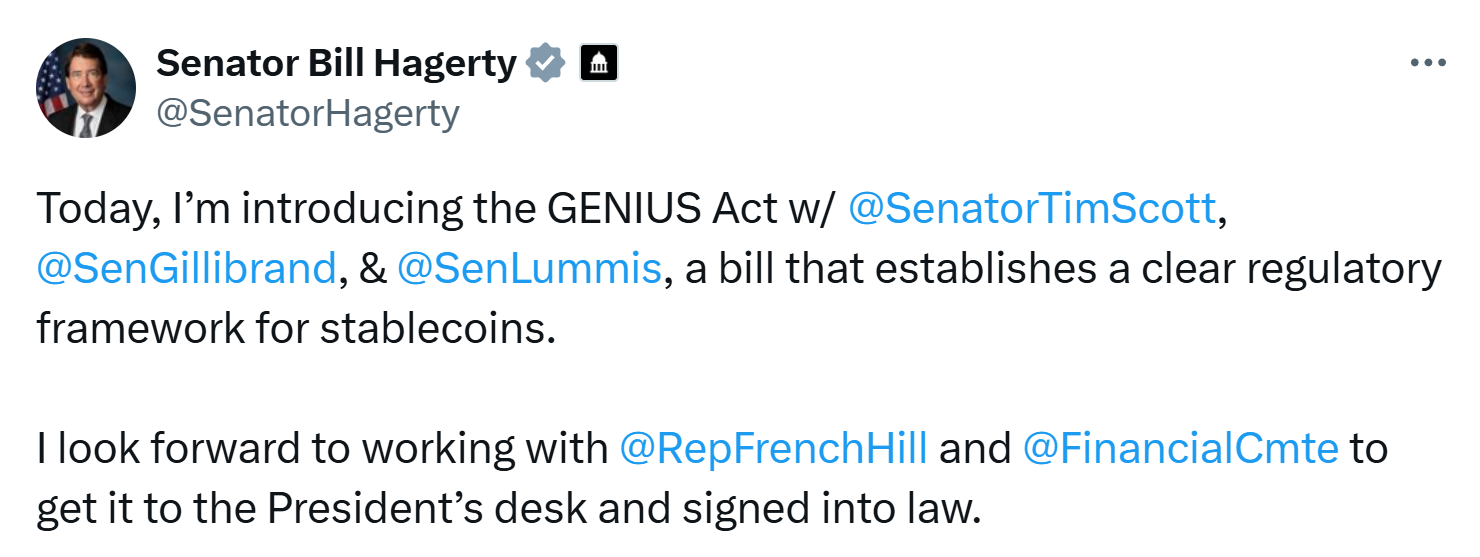2025-02-05


The bill, co-sponsored by Senators Tim
Scott, Kirsten Gillibrand, and Cynthia Lummis, seeks to establish guidelines
for stablecoin issuance, oversight, and compliance.
The GENIUS Act defines a payment
stablecoin as a digital asset pegged to a fixed monetary value, typically the
U.S. dollar, for use in payments and settlements.
Under the bill’s provisions:
The legislation also includes a ban on
algorithmic stablecoins, a category of digital assets that rely on complex
financial mechanisms instead of direct fiat backing.
Additionally, it mandates compliance
with U.S. anti-money laundering (AML) laws and sanctions regulations.
Senator Hagerty emphasized the
importance of fostering financial innovation while ensuring consumer
protection.
“This bill creates a safe and
pro-growth regulatory framework that will unleash innovation and advance the
President’s mission to make America the world capital of crypto,” Hagerty
stated.
The GENIUS Act builds on previous
legislative efforts, including the Clarity for Payment Stablecoins Act, which
was introduced as a discussion draft in October 2024.
The bill has already gained attention
among lawmakers and financial regulators. Senator Hagerty confirmed his intent
to work with Representative French Hill and the House Financial Services
Committee to advance the bill.
Financial analysts note that the stablecoin
market currently stands at $227 billion, with firms like Bitwise predicting it
could reach $400 billion by year-end.
The legislation could provide
long-awaited clarity for major stablecoin issuers such as Tether (USDT) and
Circle’s USD Coin (USDC), both of which have market caps exceeding $10 billion.
The introduction of the GENIUS Act
signals renewed bipartisan interest in stablecoin regulation as the U.S. seeks
to maintain its leadership in global financial innovation.
With growing support, Senate staffers
anticipate swift movement through committees, potentially making this a legislative
development in 2025.